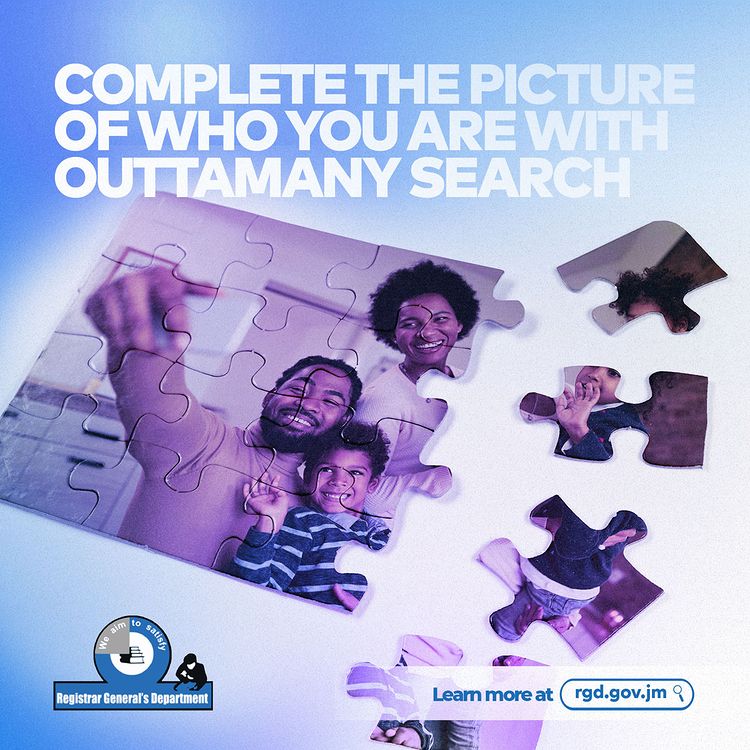Outtamany Search
Genealogical Research
A Outtamany Search ( formerly Genealogical Research) is an investigation to discover a person’s family background that gives historically information about the family lineage. The Research can tell a story about a family and provide factual evidence on the cause(s) of death through generations. It can identify the actual origin of a family and discover family members that are unknown. The Registrar General’s Department offers this research at an affordable cost to all persons interested in identifying their family history.

Have you ever wondered about the meaning of your last name or where your family came from, what your great-great grandparents did or where they lived? Do you have a little knowledge about your family history, a few old documents and an overwhelming curiosity? Well this is what you should do:
- Collect all the records you can – birth, marriage, death or adoption certificates, deed polls or any other documents.
- Interview the relatives you have contact with for information on family history. You can start with your parents.
- Visit the Registrar General’s Department or complete the Genealogical Request form. Alternately you can email them at genealogy@rgd.gov.jm
How is the Research Done?
All persons interested in using the Outtamany Search (formerly Genealogical Research) facility are required to complete an application form. The applicant will indicate the number of generations they wish to include in the search (how far back they want to go) names, places and dates of birth, places and dates of death, and places and dates of marriage, for as many parents, grandparents and great grandparents. The RGD Research Unit will subsequently carry out its investigations by conducting interviews, visiting previous residences, visiting final resting places, checking RGD’s records database (repository of indices of all vital events) and conducting other index searches.
A Outtamany Search (formerly Genealogical Research) may be conducted and results are prepared within 4 weeks of payment. To trace one’s family history, the applicant must ensure that the application form is accurately completed and as much information that is available is provided to the Research unit. At the end of the search the applicant will receive, via email or mail, a report of all the findings. A family tree, which is a graphical structure of the family line, can be provided at an additional cost, and a family member’s certificate can be purchased for events occurring before 1879.
You will need to provide the following information:
- Names of parties
- Parish of births
- Approximate dates of births or deaths
- Names of brothers or sisters or other relatives
- Spouses’ names
- District of residence
- Parishes of residence
- Occupations
Why should an Individual or Group of Individuals Want to Conduct a Search?
- Satisfying an inherent desire to know “Who am I?” and “Where Did I come from?”
- Determining a relationship to some historical person, to some member of the nobility or to famous persons such as movie stars and athletic personalities.
- Extending and re- connecting family units, which have been fragmented and separated
- Educating young people by bringing history to life
- Tracing causes of deaths through generations in order to assist in medical research